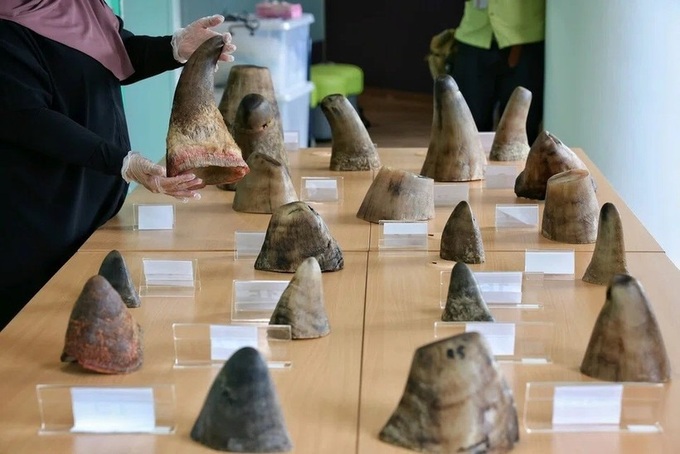
The seized horns came from the white rhinoceros (Ceratotherium simum), according to the National Parks Board’s Centre for Wildlife Forensics. (Photo: www.straitstimes.com)
Singaporean authorities announced in a media briefing on November 18 that other than the 20 rhino horns estimated to be worth some SGD 1.13 million (USD 870,000), the authorities also discovered within four cargo shipments around 150kg of other animal parts including bones, teeth, and claws.
The horns came from the white rhinoceros (Ceratotherium simum), according to the National Parks Board’s (NParks) Centre for Wildlife Forensics. The other animal parts are still being identified, but are likely to have come from carnivores.
The authorities said the horns will be disposed of according to international guidelines to prevent them from re-entering the market.
NParks senior director of wildlife trade Anna Wong said DNA analysis is being carried out to identify the number of rhinos involved, as well as to use the data to work with the University of Pretoria in South Africa to trace the origins of the animals.
The latest rhino horn seizure on November 8 came after an earlier incident in October 2022, in which 34.7kg of rhinoceros horns worth around SGD 1.2 million was seized from two transit bags bound for Laos at Changi Airport. The South African man who was caught was sentenced to two years’ jail, the heaviest sentence meted out to date for a case involving the smuggling of wildlife parts. Since then, the penalties imposed on trafficking wildlife parts and products have been increased.
Conservation group International Rhino Foundation said the number of white rhinos in Africa had dropped to 15,752 by the end of 2024, down from 17,464 in 2023.
